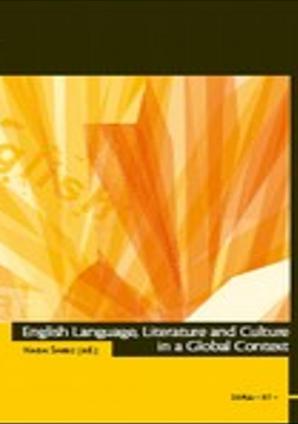English Language, Literature and Culture in a Global Context
Synopsis
The common theme of the papers gathered in this volume is English used in its global dimension. This is not surprising. In fact, it is quite fitting that it should be so in view of the current status of English. English seems to be functioning as the lingua franca of the world, exerting a strong impact on all other languages and as such it certainly deserves the full attention of linguists and scholars from related fields.
The papers bring important findings in the field of linguistics, literary criticism and intercultural studies. Despite each author addressing the topics from their own specific perspectives, the papers share a common interest in English used in a global context. With the growing number of non-native speakers using it for communication, English grows ever stronger and is now faced with two alternative paths of development: differentiation into local varieties and a merger into so called global English. It is not clear which one will prevail in the long run, but there is no doubt that the latter, despite the seeming simplification of its form, presents a special challenge for the linguist today both in terms of use and the relatively high degree of variation in its structure. The same is true of the globalizing effect that English has on other languages that come in contact with it. The paper providing a detailed analysis of the English influence on Slovene on the levels of phonology, morphology, syntax, vocabulary, spelling and pragmatics is certainly relevant for other language contact situations as well. Furthermore, it provides insights into the mechanisms and norms governing such situations and may be indicative of potential language changes resulting from that contact. Other papers offer interesting views on language in general and English in particular.
This is true especially of the paper in which the author provides a critical survey of the theories about the relationship between language and reality, from traditional to more recent ones, emphasizing the advantages of the so called ecological approach. Most papers are interdisciplinary in nature, taking into account the underlying cultural values that crucially define language use and are often a cause of communication breakdowns. Studying the use of language in intercultural contexts and applying the findings to practice, be it in translation or in language teaching, are worth pointing out. The cultural component is also present throughout the section dealing with literature, which is mostly interested in analyzing the reception and interoperation of literary works in different cultural and/or ethnic environments. A good example of such an approach is the article analyzing short stories written by Canadian authors of Chinese descent. There we observe the growing impact of the Canadian linguistic and cultural setting and a gradual displacement of typically Chinese themes by those that are more English and/or globally oriented. I believe that, due to the topicality of the themes discussed, this volume couldn’t have come at a better time. It presents a number of important findings and suggests some innovative approaches with potential practical implications. Another positive aspect that needs to be pointed out is that, in bringing together authors from different linguistic and cultural backgrounds (both native and non-native speakers of English), it promotes not merely professional cooperation, but also the much talked about and sorely need intercultural dialogue on all levels in both European and global contexts. While it is obvious that this wide area needs more research to define and resolve individual issues in a more specific and thorough manner, it is nevertheless hoped that this volume sheds some light on the processes involved in the globalizing effect that English seems to be exerting on the rest of the world today.
Downloads






